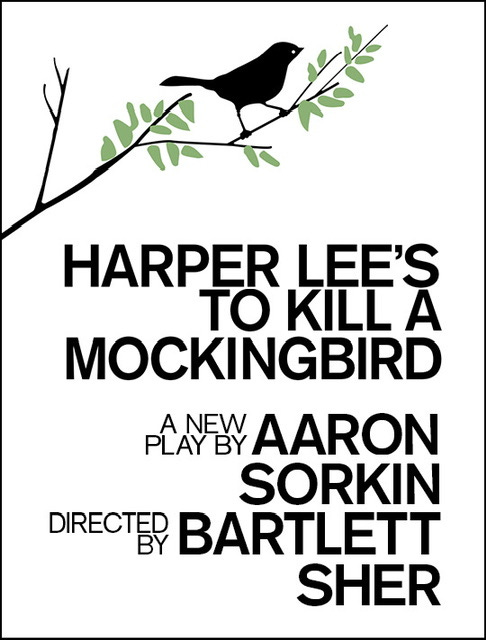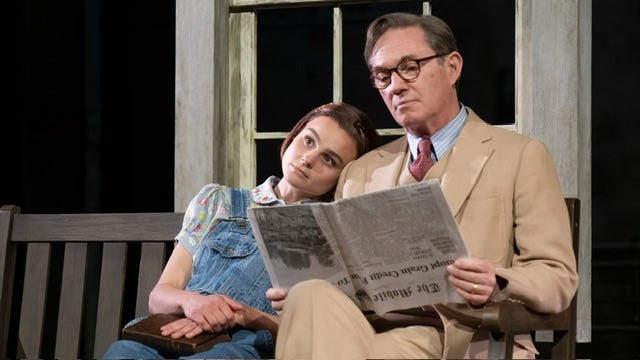Theater: “To Kill a Mockingbird”
The Aaron Sorkin production starring Richard Thomas at the Pantages in Los Angeles
Theatrical productions are a rare occurrence for me. Few productions earn my interest. The recent 2018 Broadway stage adaptation of Harper Lee’s classic novel To Kill a Mockingbird with Jeff Daniels as Atticus Finch caught my attention.
Having seen the film version with Gregory Peck (On the Beach), which is not a favorite, I became interested in playwright Aaron Sorkin’s interpretation for Broadway. Sorkin wrote what I consider to be the best motion picture of 2015, Steve Jobs, based on a Walter Isaacson biography—Isaacson’s biography of Elon Musk goes to press later this year—and I appreciate Sorkin’s NBC series The West Wing. I’m also an admirer of actor Richard Thomas, who portrayed the leading lawyer character in the recent touring show, as I think he is one of the world’s most underrated leading actors. I was also drawn because Sorkin sought to adapt the novel—not the film.
A friend—the same friend with whom I attended Dermot Kennedy’s concert this year—was also interested. We went to see To Kill a Mockingbird at the Pantages theater in Hollywood. After settling into seats with good sight lines, I was impressed by the staging. The production falls short for one major reason: Scout, the lawyer’s daughter character, is portrayed as an adult—presumably to give the matter relevance and perspective. In the stage drama I attended, it doesn’t.
The contrivance detracts. This is at least partly due to the actress playing Scout, an understudy as I recall who projected her voice to excess, talked with 21st century flippancy (with an exaggerated Southern accent) and overacted, all of which ruined the intended illusion, not that I’m convinced that featuring an adult Scout is a wise theatrical device. With Scout framing the show, the whole production lost potency.
Sorkin’s writing is tight and crisp. To Kill a Mockingbird swiftly moves. Playing up certain black characters, such as the widowed lawyer family’s housekeeper Calpurnia, works well and the actress playing Calpurnia delivered a fine performance. One of several major problems with the Sixties film version, in my judgment, is that the black character falsely accused of rape by a white woman in 1930s Alabama, Tom Robinson, is subordinated to the children characters—Jem and Scout—and the mysterious Boo Radley. That problem gets fixed in Sorkin’s adaptation, which strengthens the Dill character. The fix is minimized by the overly modern theatricality of an adult Scout.
Richard Thomas as Atticus Finch shines. This actor, who’s played every role from a soldier in a dramatic version of All Quiet on the Western Front to John-Boy in various adaptations of the late Earl Hamner, Jr.’s mountain family novels and screenplays, excels in his every endeavor; the demanding role of a Southern gentleman lawyer, father and widower is no exception. Every line—every part of his performance—including the passionate courtroom trial scenes and every silence teems with drive for justice. I’m gratified for having seen this actor perform on stage. I’m fully persuaded that Mr. Thomas can play any role with intensity, humor and poise. He ought to be cast in motion pictures and more—including new and original—stage roles. Richard Thomas is that good. This version of To Kill a Mockingbird, clipped by a modern hook and overdone performance, is not.





